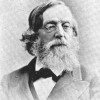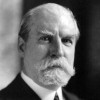Human beings, like birch trees, often seem more interesting when a little off center.
Marcelene Cox (1900-1998) American writer, columnist, aphorist
“Ask Any Woman” column, Ladies’ Home Journal (1960-08)
(Source)
Quotations about:
variation
Note not all quotations have been tagged, so Search may find additional quotes on this topic.
Matho alleges that my book’s uneven.
He compliments my poems, if that’s true.
Calvinus and Umber write consistent books.
Consistent books are lousy through and through.[Iactat inaequalem Matho me fecisse libellum:
Si verum est, laudat carmina nostra Matho.
Aequales scribit libros Calvinus et Umber:
Aequalis liber est, Cretice, qui malus est.]Martial (AD c.39-c.103) Spanish Roman poet, satirist, epigrammatist [Marcus Valerius Martialis]
Epigrams [Epigrammata], Book 7, epigram 90 (7.90) (AD 92) [tr. McLean (2014)]
(Source)
"To Creticus" (Source (Latin)). Alternate translations:
Matho objects, my books unequal are;
If he says true, he praises ere aware.
Calvin and Umber write an equal strain:
Naught is the book that's free from heights, and plain.
[tr. Killigrew (1695)]
My book is unequal, a Matho may boast.
So saying, he knows not he cries it up most.
Books equal a Calvin and Umber did write;
But equally penn'd in poor Pallasses spite.
[tr. Elphinston (1782), Book 3, ep. 15]
Matho exults that I have produced a book full of inequalities; if this be true, Matho only commends my verses. Books without inequalities are produced by Calvinus and Umber. A book that is all bad, Creticus, may be all equality.
[tr. Bohn's Classical (1859)]
I've writ, says Matho, an uneven book:
If that be true, then Matho lauds my verse.
Umber writes evenly, Calvinus too;
For even books, to be sure, are always bad.
[ed. Harbottle (1897)]
Matho puts it abroad that I have composed an unequal book; if that is true, Matho praises my poems. Equal books are what Calvinus and Umber write: the equal book, Creticus, is the bad one.
[tr. Ker (1919)]
My work's uneven, you protest
And sometimes falls beneath my best;
A compliment, say I:
Dull bards on level planes that grope
Shall never err -- or soar -- with Pope,
Although they shine with Pye.
[tr. Pott & Wright (1921), "The Dull Level"]
I write unequal verse, so Matho says;
If it be true his criticism's a praise.
Try Umber, Cluveienus by that test:
No, Creticus; bad's bad; good seldom best.
[tr. Francis & Tatum (1924), #382]
Matho exults and crows my book's uneven.
If that is true, he praises me. I'm glad.
Calvinus and Umber write books that are even.
Even books are books that are all bad.
[tr. Marcellino (1968)]
Matho's mad,
upset,
says my book
is unfair.
That's good,
I'm glad:
fair books
are dull books.
[tr. Goertz (1971)]
Matho spreads the word that I have made an uneven book. If so, Matho praises my poems. Calvinus adn Umber write even books. An even book, Creticus, is a bad book.
[tr. Shackleton Bailey (1993)]
Matho says my book's uneven.
He thinks he's quite the joker.
I'd rather have both highs and lows,
Than just be mediocre.
[tr. Ericsson (1995)]
Matho's one-word review of my small book:
"Uneven." I'm supposed to get all shook!
The scribblings of Calvinus and Umber
Are very "even" ... yet how they lumber.
I swear to you, Creticus, I thank God
My gift is for being quite frankly "odd."
[tr. Schmidgall (2001)]
Dour Matho offers me a "mixed review,"
To which contentedly I answer, "Whew!"
Most poets get reviews that are unmixed,
With every verse and stanza in them nixed.
[tr. Wills (2007)]
Smootus says my book is uneven.
I see this as praise of my work.
A bad book is fat with unvarying quality.
[tr. Kennelly (2008)]
Matho is crowing that I've "made an inconsistent book." If he's right, he's actually praising my poems. Calvinus and Umber write "consistent" books; if a book's "consistent," Creticus, it's consistently bad.
[tr. Nisbet (2015)]
Observe that part of a beautiful woman where she is perhaps the most beautiful, about the neck and breasts; the smoothness; the softness; the easy and insensible swell; the variety of the surface, which is never for the smallest space the same; the deceitful maze, through which the unsteady eye slides giddily, without knowing where to fix, or whither it is carried. Is not this a demonstration of that change of surface continual and yet hardly perceptible at any point which forms one of the great constituents of beauty?
Edmund Burke (1729-1797) Anglo-Irish statesman, orator, philosopher
A Philosophical Inquiry into the Origin of Our Ideas of the Sublime and the Beautiful, 3.15 (1756)
(Source)
We were like a lot of clocks, he thought, all striking different hours, all convinced we were telling the right time.
Despair says It’s all the same. Happiness knows there are even a thousand Despairs.
James Richardson (b. 1950) American poet
“Vectors: 56 Aphorisms and Ten-second Essays,” Michigan Quarterly Review, # 50 (Spring 1999)
(Source)
People often say that a set of books looks ugly if all volumes are not in the same format, but I was impressed to hear the Abbot Koyu say, “It is typical of the unintelligent man to insist on assembling complete sets of everything. Imperfect sets are better.”
The oppression of women knows no ethnic nor racial boundaries, true, but that does not mean it is identical within those boundaries.
Audre Lorde (1934-1992) American writer, feminist, civil rights activist
“An Open Letter to Mary Daly” (6 May 1979)
(Source)
One lesson the arts teach is that there can be more than one answer to a question and more than one solution to a problem; variability of outcome is okay. […] The arts teach children that their personal signature is important and that answers to questions and solutions to problems need not be identical. There is, in the arts, more than one interpretation to a musical score, more than one way to describe a painting or a sculpture, more than one appropriate form for a dance performance, more than one meaning for a poetic rendering of a person or a situation. In the arts diversity and variability are made central. That is one lesson that education can learn from the arts.
Elliot Eisner (1933-2014) Academic, researcher, professor of art and education
The Arts and the Creation of Mind, ch. 8 (2002)
(Source)
Variant: "The arts teach children that problems can have more than one solution; questions can have more than one answer. If they do anything, the arts embrace diversity of outcome."
Let us not torment each other because we are not all alike, but believe that God knew best what He was doing in making us so different. So will the best harmony come out of seeming discords, the best affection out of differences, the best life out of struggle, and the best work will be done when each does his own work, and lets every one else do and be what God made him for.











